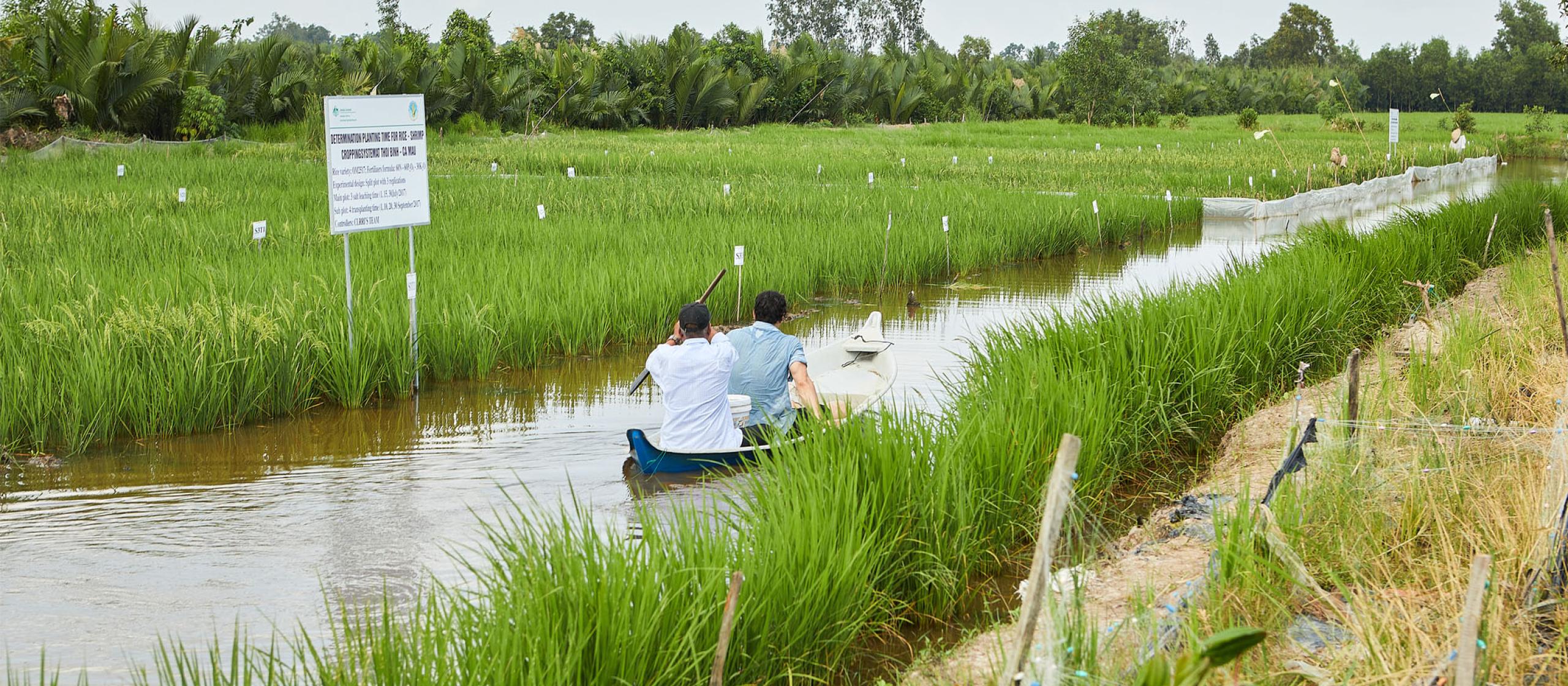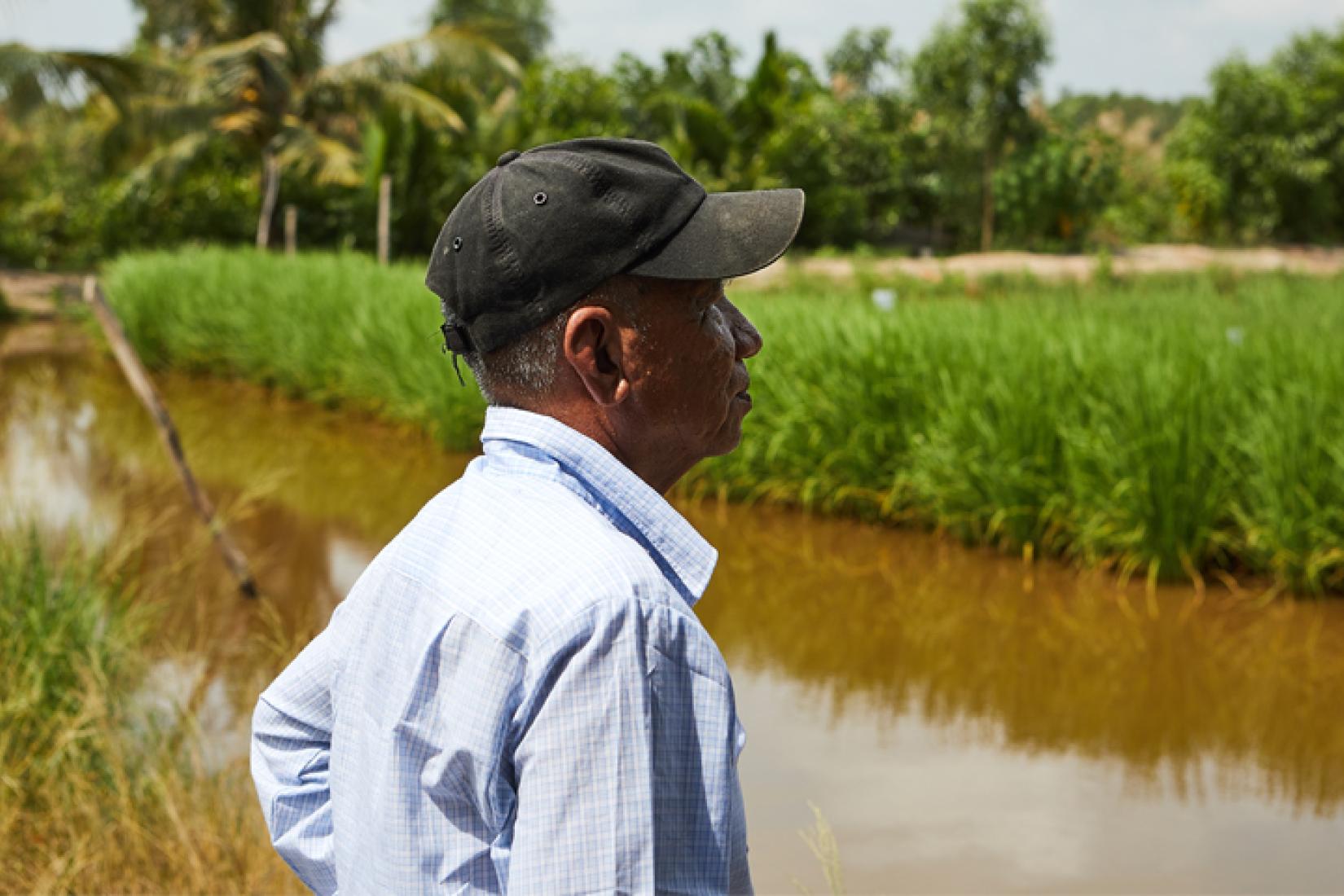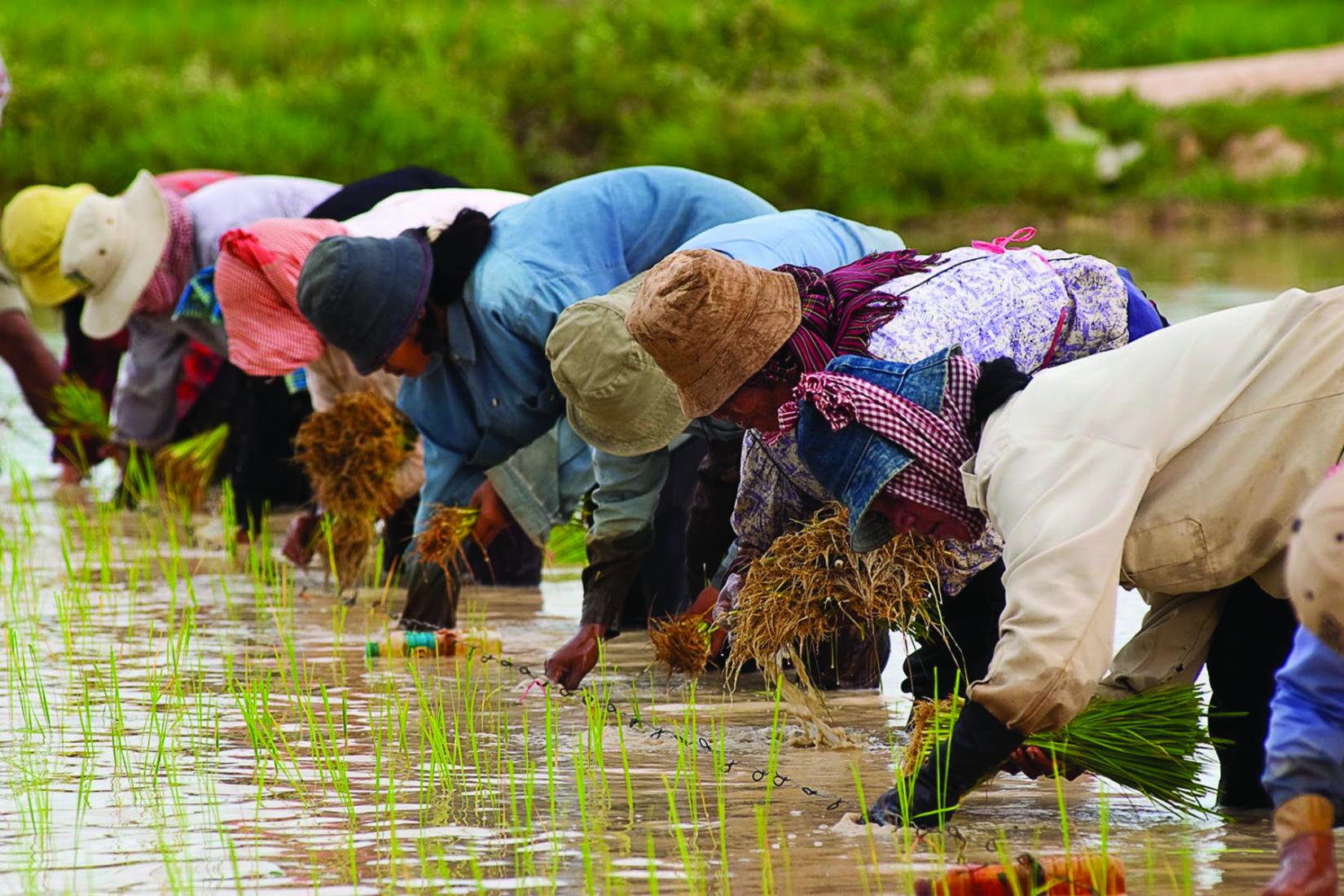Rising Tide
Rising sea levels have caused salt-water intrusion further up-river and into rice paddies, hurting the rice industry. Using spatial data, the project maps the risks of sea-level rise to predict future flooding. The project is also working on salt-tolerant and high-yielding rice varieties through the marker-assisted backcrossing plant breeding technique.
A total of 300 traditional and improved rice varieties were screened for survival and recovery potential, and new breeding lines were developed. Four rice lines were submitted for varietal release across the four target provinces in 2014. These included varieties for short growth duration, submergence and salinity-tolerance, and high yield. A total of five tonnes of seed of improved breeding varieties, comprising either four or eight varieties for each province, was distributed to the four provinces. Reduced phosphorus requirements for all varieties without affecting yield have also enabled farmers to increase their net incomes. In addition to breeding work, climate-smart agricultural practices and technologies, such as alternate wetting and drying to reduce greenhouse gas emissions, were implemented and are now influencing new climate change policies.
An inexpensive alternate wetting and drying technique was assessed by 100 farmers in Bac Lieu province. The ‘drain and re-flood’, or alternate wetting and drying approach reduces water use by 30 to 50% and reduces methane emissions from rice paddies by up to 50% compared to conventional continuous flooding. In all, 1,418 farmers were trained in the technique across 30 hectares of demonstration sites.
The CLUES project also trained 3,960 farmers (3,260 men and 700 women) on participatory rice varietal selection, and raised awareness of climate change for 2,979 local farmers and local government staff (including 862 females) through participatory discussions.
‘The interdisciplinary approach adopted by the CLUES project—encompassing hydrology, plant breeding, crop management and socio-economic approaches—yielded a range of tangible results on future risks stemming from sea level rise as well as possible response strategies in terms of adaptation and mitigation in rice-based systems of the delta,’ says Dr Wassmann.
The CLUES project has yielded useful results to benefit farmers in the Mekong Delta region and other coastal areas to improve rice production. Vietnam’s ‘white gold’ industry now has a stronger chance of improving even when faced with climate change.





